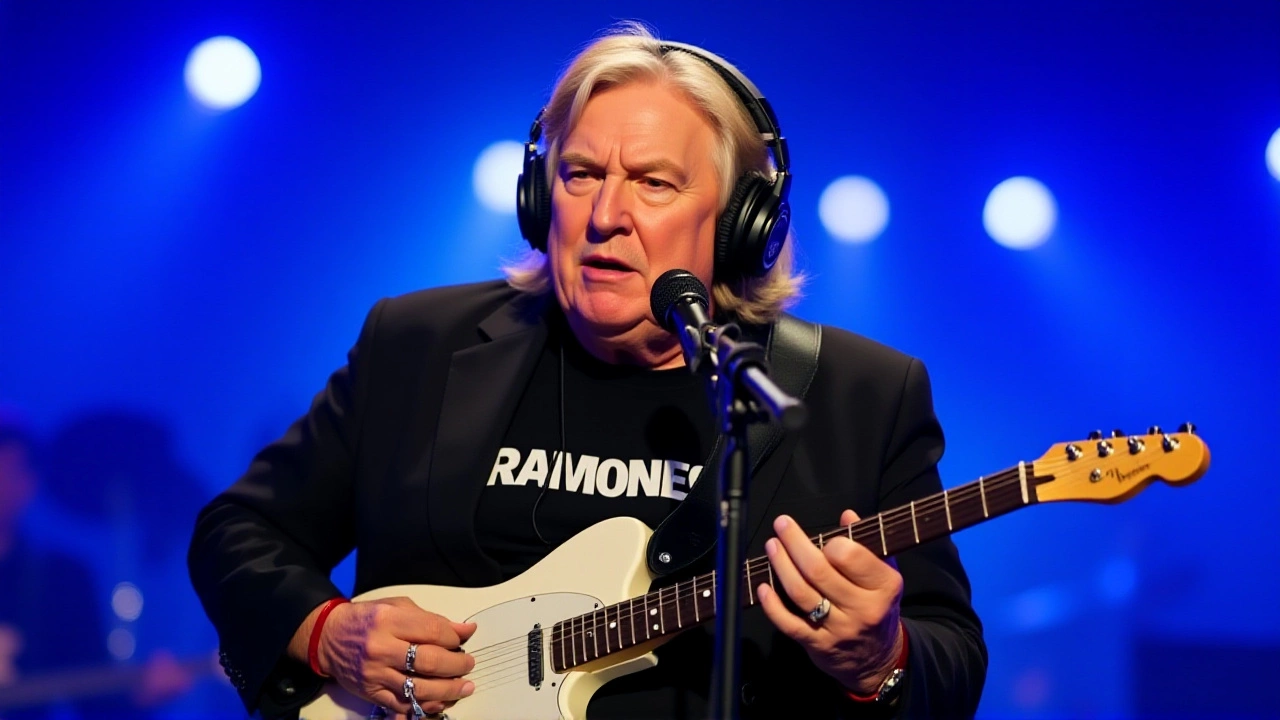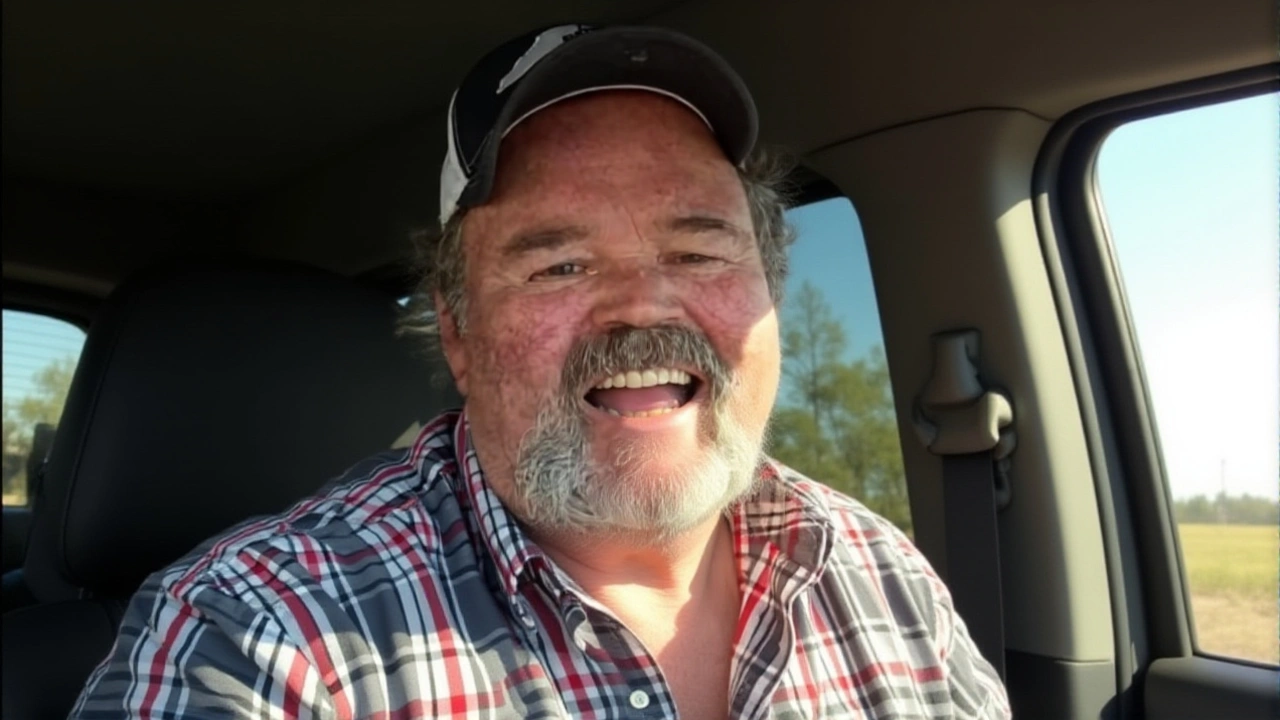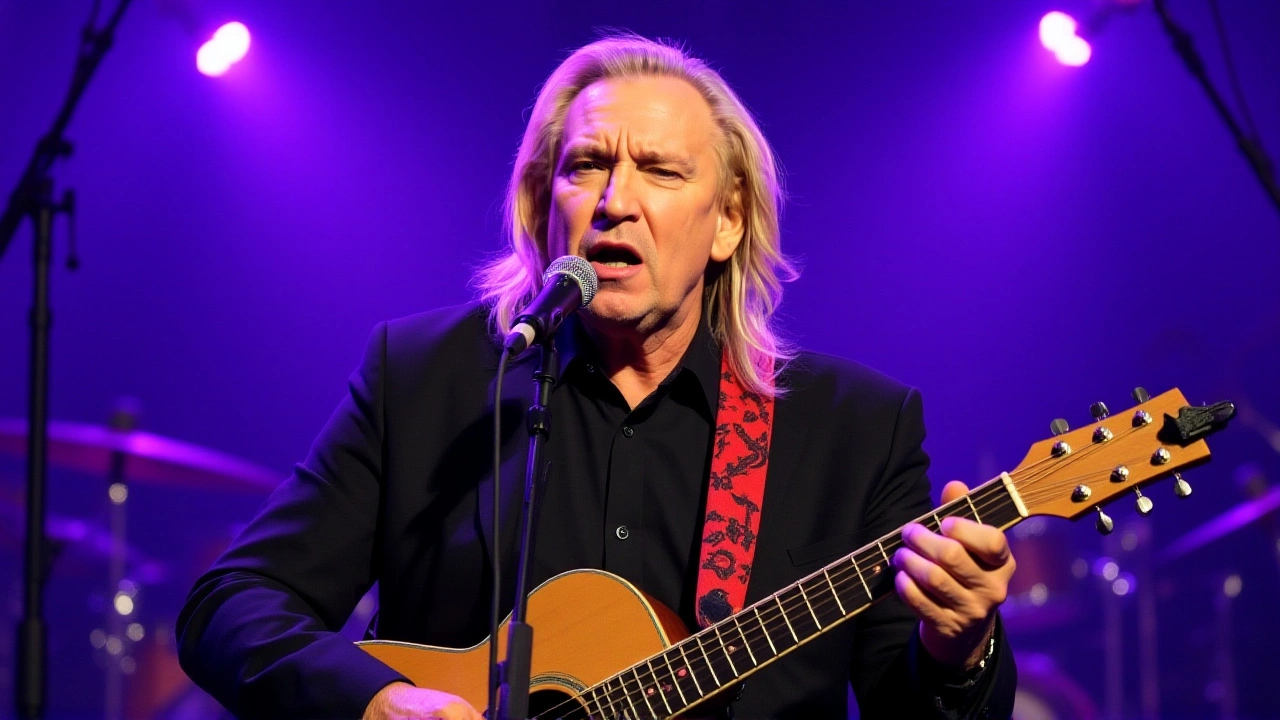When Joe Walsh stepped onto the stage at INTRUST Bank Arena in Wichita, Kansas on November 14, 2025, he didn’t just play a concert—he fulfilled a promise made decades ago. The Joe Walsh of the Eagles, now 77, brought his ninth annual VetsAid benefit to his birthplace, the city where his parents were born, lived, and are buried. For Walsh, it wasn’t just another show. It was a homecoming with purpose.
A Legacy Rooted in Wichita
Born on November 20, 1947, in Wichita, Walsh grew up in a military family shaped by loss. His father, a U.S. serviceman, died in 1949 when Walsh was just 20 months old. That early grief became the quiet engine behind his life’s work. In 2017, he founded VetsAid, a nonprofit based in Columbus, Ohio, to raise money for grassroots veteran support organizations. Since then, the annual concerts have generated over $4 million in grants—money that goes directly to food pantries, mental health counseling, housing aid, and job training for veterans and their families.This year, for the first time ever, the tour stopped in Kansas. "It’s been a long-term goal since we began VetsAid nearly 10 years ago," Walsh told reporters. "To bring it home. To serve the people who raised me. To honor my father’s sacrifice where it matters most—in the soil where he lived."
The Night the Music Stopped Politics
The concert, streamed live on Veeps, was a who’s who of American music. Vince Gill, also a member of the Eagles, joined in. So did Susan Tedeschi and Derek Trucks of the Tedeschi Trucks Band. Ryan Bingham and The Texas Gentlemen brought grit. Nathaniel Rateliff delivered soul. And then came the moment no one saw coming: Jimmy Webb, the legendary songwriter of "Wichita Lineman", walked onstage.The two men played the song—written in 1968 about a lonely lineman in the Kansas plains—just as the lights dimmed. No pyrotechnics. No backing tracks. Just Walsh’s guitar, Webb’s voice, and a crowd of 12,000 sitting in stunned silence before erupting. "That’s the song that made me believe music could be a lifeline," Walsh said afterward. "And tonight, it felt like it was speaking directly to the veterans in the room."
A City Honors Its Own
In the days leading up to the concert, Wichita announced it would rename a stretch of 21st Street to "Joe Walsh Way"—a move that surprised even Walsh. "I’m just Joe here," he told local radio station WJLX 1015. "That’s how Wichita is. You don’t get a street named after you unless you’ve earned it. And I didn’t even ask for it."The renaming wasn’t just symbolic. It was a signal: this city, which once saw Walsh as just another kid with a guitar, now sees him as a pillar of its moral compass. The event drew veterans from all branches, some in wheelchairs, others with service dogs, many wearing faded uniforms. One veteran, 74-year-old Harold Jenkins, a Vietnam-era medic, told a reporter: "I haven’t cried at a concert since ’72. But when they played that song… I couldn’t help it."

More Than a Concert
While the music stole headlines, Walsh was quietly auctioning off pieces of his career—guitars, amps, handwritten lyrics—from his personal collection. Proceeds from those sales, he confirmed, will also go to VetsAid. The auction includes the 1972 Fender Telecaster he used on the Eagles’ "Hotel California" tour and a custom-wired Marshall stack he used during his 1978 solo tour."People think rock stars live in mansions," Walsh said. "I live in a house with three dogs, a garden, and a garage full of old gear. But these things? They’ve carried me. Now they can carry others."
Why This Matters
In a time when national discourse fractures along political lines, VetsAid offers a rare blueprint: music as bridge-building. "I want people who don’t agree to sit next to each other," Walsh said. "Politics doesn’t matter here. You come for the music, you leave with a little more hope. That’s a good feeling."The model is working. Since 2017, VetsAid has funded over 120 local veteran nonprofits across 34 states. In Kansas alone, grants from this year’s concert will support the Kansas Veterans Resource Center in Topeka and the Wichita Veterans Housing Initiative, which helps homeless vets transition into stable housing.

What’s Next?
Walsh has already hinted that next year’s VetsAid concert will be held in Nashville, but he insists Wichita won’t be forgotten. "This isn’t a one-time thing," he said. "It’s a tradition now. And traditions need roots."For now, the street sign on Joe Walsh Way stands proudly near the arena. Veterans stop by to take photos. Kids ask their parents who he is. And every time someone plays "Wichita Lineman" on the radio, the song carries a new layer of meaning—written for a lonely man in the Kansas fields, now echoing for those who came home carrying invisible burdens.
Frequently Asked Questions
How much money did the 2025 VetsAid concert raise for Kansas veterans?
Exact final figures are still being tallied, but early estimates from VetsAid indicate the Wichita concert generated over $750,000 in ticket sales, merchandise, and live-stream donations. Combined with proceeds from Joe Walsh’s memorabilia auction, the total is expected to exceed $1 million, all designated for Kansas-based veteran services like housing, mental health counseling, and job training programs.
Why was Jimmy Webb’s appearance so significant?
Jimmy Webb wrote "Wichita Lineman" in 1968, a song deeply tied to Kansas’s landscape and emotional identity. His appearance wasn’t just a guest spot—it was a homecoming for the song itself. The lyrics, about isolation and quiet resilience, resonated powerfully with veterans. For Walsh, performing it with Webb in his hometown was the emotional climax of his decade-long mission: to turn music into healing.
Is Joe Walsh still performing with the Eagles?
Walsh remains a core member of the Eagles, though he’s scaled back touring in recent years. He joined the band in 1975 and was inducted into the Rock and Roll Hall of Fame with them in 1998. While he didn’t perform with the Eagles at their November 2025 Hall of Fame induction ceremony, he continues to contribute to new material and occasional live shows, balancing his solo work with his legacy role in the band.
How does VetsAid choose which veteran organizations to fund?
VetsAid prioritizes grassroots, locally-run nonprofits that provide direct services—like food, housing, and counseling—with minimal administrative overhead. Applications are reviewed by a panel of veterans and nonprofit experts. In 2025, 87% of funds went directly to programs, with only 13% covering operational costs, well above the industry standard of 65% direct impact.
What made this concert different from previous VetsAid events?
For the first time, the concert took place in the founder’s hometown, adding deep emotional weight. It also featured a city-wide honor—renaming a street to "Joe Walsh Way"—and was the first VetsAid event held in Kansas. The audience included a higher-than-usual percentage of local veterans, many of whom had never seen a live concert before. The setting transformed the event from a fundraiser into a community reckoning with service, sacrifice, and home.
Will there be a 2026 VetsAid concert?
Yes. Walsh has confirmed plans for a 2026 concert, likely in Nashville, but emphasized that Wichita will remain a permanent stop on the VetsAid calendar. "This isn’t a tour," he said. "It’s a promise. And promises don’t expire."
